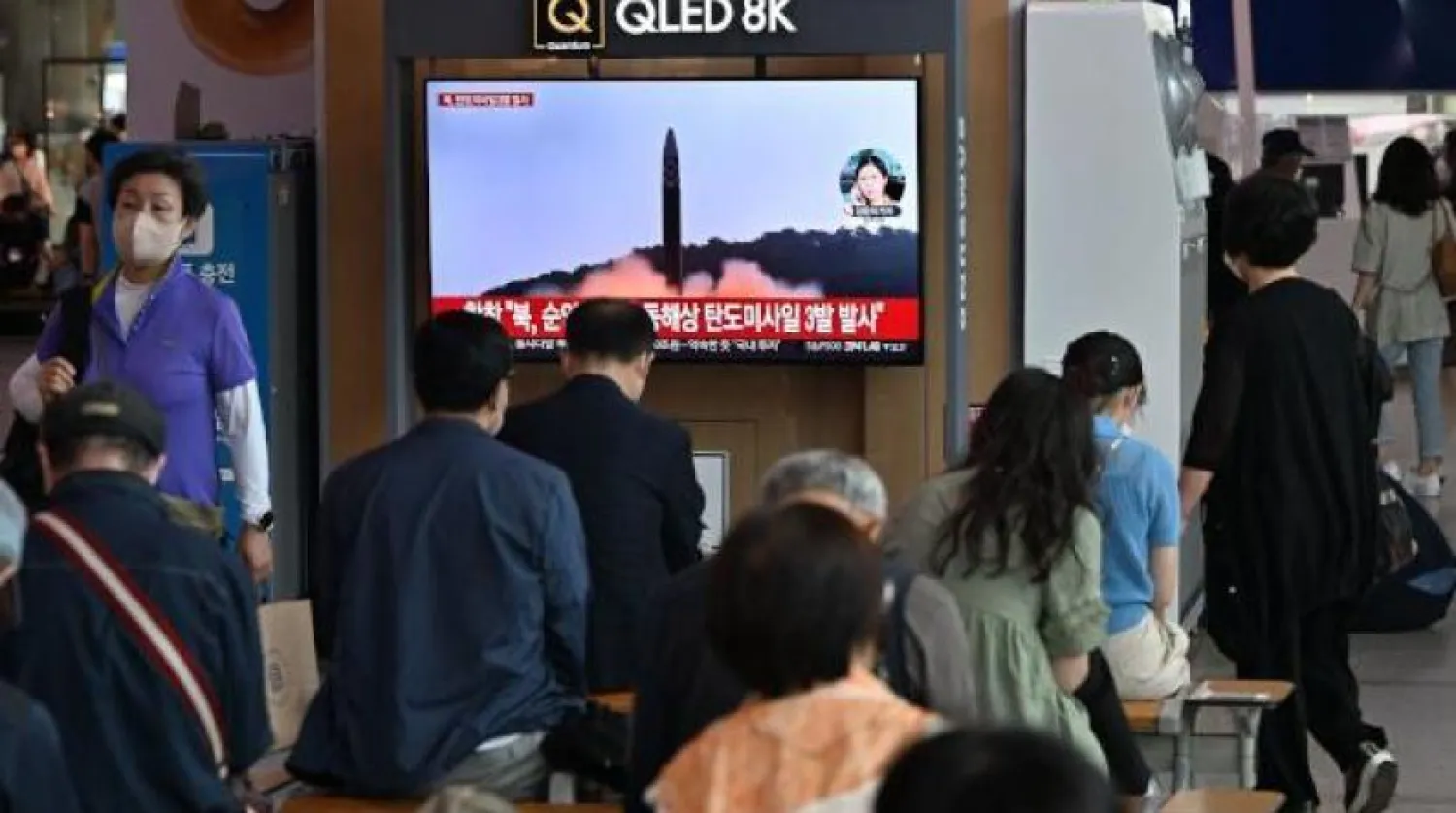North Korea launched multiple ballistic missiles into waters off its east coast Sunday, South Korea's military said, a day after Seoul and Washington completed their first joint drills involving a US aircraft carrier in more than four years.
Pyongyang has doubled down on upgrading its weapons program this year, despite facing crippling economic sanctions.
"Our military detected eight short-range ballistic missiles fired from the Sunan area in Pyongyang, North Korea into the East Sea," Seoul's Joint Chiefs of Staff said, referring to the Sea of Japan.
The launches took place over about 30 minutes on Sunday morning, it added.
"While our military has strengthened surveillance and vigilance in preparation for additional launches, South Korea and the United States are closely cooperating and maintaining a full readiness posture."
The launches took place at multiple locations, Tokyo said, adding that Pyongyang had tested missiles at "unprecedently high frequency" this year.
"We can say the very large number of launches from at least three locations in a short period of time like this time is unusual," Japanese Defense Minister Nobuo Kishi said, confirming the North fired at least six missiles.
"This is absolutely unacceptable," he added.
The launches came barely a day after South Korea and the United States wrapped up large-scale, three-day exercises involving the USS Ronald Reagan, a 100,000-tonne nuclear-powered aircraft carrier.
They were the allies' first joint military drills since South Korea's hawkish new President Yoon Suk-yeol took office last month, and the first involving an aircraft carrier since November 2017.
Pyongyang has long protested against the joint exercises, calling them rehearsals for invasion.
"The exercise consolidated the two countries' determination to sternly respond to any North Korean provocations while demonstrating the US commitment to provide extended deterrence," the Joint Chiefs of Staff said in a statement.
Go Myong-hyun, a researcher at the Asan Institute for Policy Studies, said Sunday's launch was likely a response to the US-South Korea maneuvers.
"It seems that they fired eight missiles because the scale of the joint drills has expanded in their view," he told AFP.









